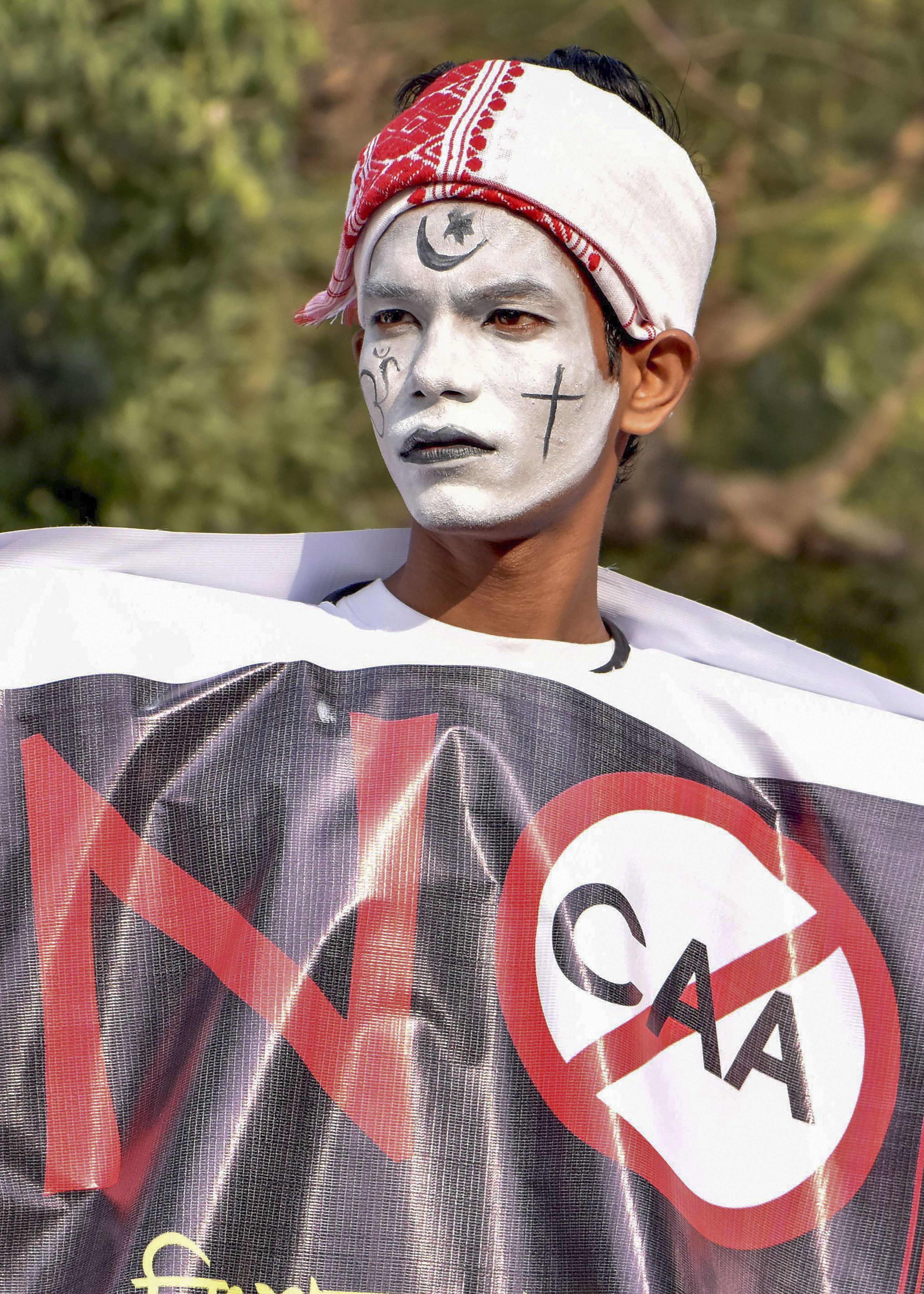The Coordination Committee of Tribal Organisations, Assam (CCTOA) met at Lakhiram Baruah Sadan here on Saturday, where representatives of various tribal autonomous councils, indigenous tribal literary bodies and students’ union unanimously decided to oppose the Citizenship (Amendment) Act tooth and nail.
The representatives also demanded that the Centre as well as the state government initiate a dialogue with the protesters at the earliest.
Talking to The Telegraph, CCTOA convener Aditya Khaklary said, “Our stand on CAA is very clear. We have been opposing it since long. In this regard, we also submitted memorandum to the parliamentary standing committee. We also opposed CAA on November 30 in front of the Union home minister. At this moment, taking cognisance of the severity and widespread anti-CAA agitation, we demand that Delhi and Dispur initiate a dialogue.”
Khaklary asserted that the tribal bodies would not accept any imposition, either in the form a bill or Act, which can destroy indigenous culture, language and social fabric.
Khaklary said, “We welcome the government’s announcement to form three more autonomous councils for the Moran, Muttock and Koch-Rajbongshsis. There is a question of socio-economic development for every community. No community should be deprived of welfare. But we oppose granting of Scheduled Tribe status.”
Khaklary said these communities should be given autonomy in an economic perspective. “But if they are granted ST status, it will unfold a new conflict among the communities,” he added.
Rabha Hasong Autonomous Council chief executive councilor Tankeswar Rabha said, “Granting Scheduled Tribe status to the six communities depends on the political will of the Centre as well as the state government. However, we urge both the Centre as well as the state government to ensure that the limited rights and privileges of the existing tribal communities are not violated and hampered.”











